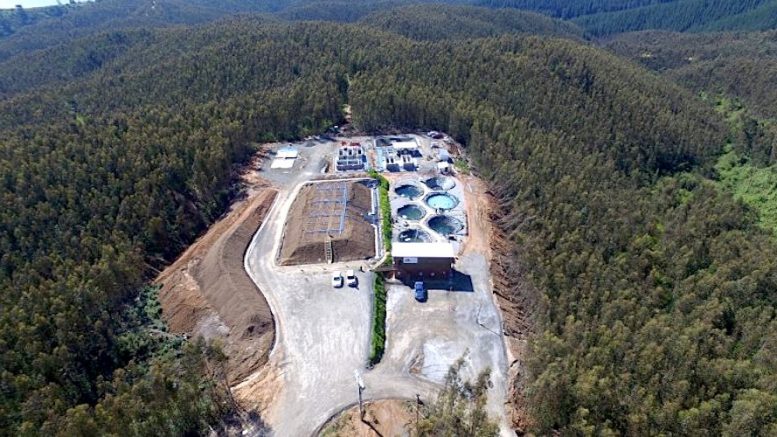Hochschild Mining’s (LSE: HOC) rare earths spin-off Aclara Resources (TSX: ARA) has withdrawn an environment impact assessment (EIA) application for its Penco Module project in central Chile to resolve issues raised by the South American nation’s government on the protection of local flora and fauna.
The company, which is focused on developing rare earth mineral resources and providing a supply alternative to China, said that it was “unable to satisfy” the Environment Assessment Authority (SEA) within the “mandated regulatory timetable” of the EIA process.
Aclara has decided to take more time in order to “fully understand and resolve the remaining issues” and resubmit a revised EIA application for its sole project.
“This is a major setback to the project, though we will keep pushing hard to resolve these issues as quickly as we can, and refile new permits,” the company’s CFO Francois Motte told The Northern Miner. “We have not given any guidance to the market on the delay this entails, but we believe two years would be a conservative number that we will seek to improve.”
Penco Module, which covers 6 sq. km, contains ionic clay deposits that are rich in heavy rare earth elements (REE) and are hard to find outside of China, a country that dominates the extraction and production of REEs, the company says. Aclara plans to produce rare earth concentrate through a processing plant that will be fed by clays from nearby deposits.
As part of the EIA approval process, Aclara had filed three submissions with the last one filed on Jan. 31. The company said it resolved a number of “key aspects” related to the project during the process, but it hasn’t been able to satisfy the SEA on aspects related to the protection of the local flora and fauna.
“The issues are related to the preservation native forest (Queule tree), which represents around 5% of the land of our Penco project. The EIA considered protecting these areas, and technically we gave a buffer spacing of 30metres (supported on specialists studies),” said Motte.
“The authorities asked for a bigger buffer and we went for 40 metres. Authorities have no technical precedent (KPIs) to support their request and in the end they did not approve the 40m. We didn’t have more time to expose this case as the permitting approval was due on April 19th, so we withdrew the permits to resolve this issue with additional time.”
The company’s CEO Ramon Barua echoed similar sentiments and said the withdrawal of the EIA application was “in the best interests of moving the project forward.”
“The company is well-funded and can continue with the permitting process while it advances its exploration program and the feasibility study,” Barua said in a press release.
The Penco Module project has measured and indicated resources of 20.7 million tonnes grading 90 parts per million (ppm) praseodymium oxide, 372 ppm neodymium oxide, 10 ppm terbium oxide and 71 ppm dysprosium oxide with a combined rare earth oxide (REO) grade of 2,426 parts per million (ppm) for an REO content of 50,178 tonnes. Inferred resources add 2.1 million tonnes with an REO grade of 2,299 ppm for an REO content of 4,788 tonnes.
At presstime in Toronto, Aclara’s shares fell by 60¢ or 42.5% to 81¢, its lowest in a year. The company has 162.6 million common shares outstanding for a market cap of $131.7 million.


Be the first to comment on "Aclara Resources withdraws EIA application for its Penco Module project in Chile "